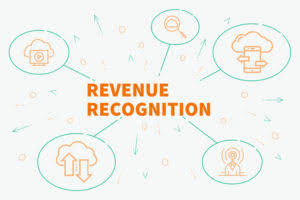
Unearned revenue is originally entered in the books as a debit to the cash account and a credit to the unearned revenue account. The owner then decides to record the accrued revenue earned on a monthly basis. The earned revenue is recognized with an adjusting journal entry called an accrual. Unearned revenue is recorded on the cash flow statement as a “deferred inflow of resources,” which is a liability account. Unearned revenue—also called deferred revenue—is money a company has received in advance for goods or services not yet been delivered or performed.

Income Statement Correlations
Remember that your total assets must equal your total liabilities and shareholder equity. With that in mind, let’s look at the process for recording unearned revenue. Unearned revenue is unearned revenue a current liability is the money that a customer pays in advance for a service you’ll provide them. In that sense, it’s income that your company has collected but hasn’t rendered services for.

Deferred Revenue and Accrual Accounting
This way, they can accurately reflect the true financial data of their business. Management can use it to grasp funds management, while investors can see if the company is generating enough cash to meet its obligations. This gives you an overview of how much money the company actually made in that period. This might include retail stores with layaway options or media companies providing streaming service subscriptions. On the one hand, it’s essentially debt that a company owes to a consumer. Quickly surface insights, drive strategic decisions, and help the business stay on track.

How Deferred Revenue Works
- The balance of the money paid early will remain in the unearned revenue account and should only be recognized as the goods and services are provided each month.
- Every month, once James receives his mystery boxes, Beeker’s will remove $40 from unearned revenue and convert it to revenue instead, as James is now in possession of the goods he purchased.
- Deferrals like deferred revenue are commonly used in accounting to accurately record income and expenses in the period they actually occurred.
- Until you “pay them back” in the form of the services owed, unearned revenue is listed as a liability to show that you have not yet provided the services.
- That means you would make the following journal entry on January 31st, to decrease the deferred revenue liability by $200 and increase membership revenue by $200.
In this guide, we look at examples of unearned revenue and explain how to record it in your financial statements. Accrual accounting is a method of financial reporting in which transactions are recorded when they are incurred, not when the cash is exchanged. This method allows for a more accurate reflection of a company’s financial activities, providing a better understanding of the company’s overall financial health. Since most prepaid contracts are less than one year long, unearned revenue is generally a current liability. According to the accounting reporting principles, unearned revenue must be recorded as a liability. In wrapping up, understanding unearned revenue is indispensable for businesses aiming for accurate financial reporting.

Let Skynova Help You Manage Your Small Business Cash Flow
By employing effective cash management strategies and robust risk assessment techniques, companies can navigate the intricacies of unearned revenue management. Adopting these practices will promote financial stability and growth while maintaining customer satisfaction and trust. Then, on February 28th, when you receive the cash, you credit accounts receivable to decrease its value while debiting the cash account to show that you have received the cash.
- Manage complex financials, inventory, payroll and more in one secure platform.
- The contractor enters $200,000 as a debit to unearned income and a credit to an account called “Homebuilding Revenue.”
- It is also known by the name of Unearned Income, Deferred Revenue, and Deferred Income as well.
- Follow GAAP rules, consult with your audit team, create any necessary unearned revenue journal entry for correction, and issue updated versions of any impacted financial reports.
- Sometimes businesses take an advance payment on a good or service meaning they’ve been paid upfront and now they need to fulfill their end of the deal.
- Revenue in cash basis accounting is reported only after it’s been received.
- If a company overestimates its working capital by not making any adjustments for unearned revenue, it may create cash flow problems in the future.
What Is Unearned Revenue and How to Account for It
- For a detailed rundown of how to recognize revenue under the new GAAP rules, check out our guide to revenue recognition.
- Unearned revenue is helpful to cash flow, according to Accounting Coach.
- Adjust the entry in your financial records by moving the revenue from unearned revenue on the balance sheet to earned revenue on the profit and loss statement.
- Under this method, when the business receives deferred Revenue, a liability account is created.
But how does one relate to the other—and do they even have a direct relationship with one another? Read on to learn more about unearned revenue, working capital, and whether the former actually has an impact on the latter. For help creating balance sheets that can track unearned revenue, consider using QuickBooks Online. QuickBooks offers a wide range of financial reporting capabilities, along with expense tracking and invoice features.
- As services are delivered, the money moves out of liabilities into assets.
- Unearned revenue, also known as deferred revenue, is a crucial element in a company’s financial statements.
- It represents the money received by a company for goods or services that have not yet been delivered.
- Each month, $200 is entered as a debit to unearned revenue and a credit to an account called “Lessons Revenue.” At the end of the year, the entire $2,400 is transferred from unearned revenue to revenue.
- Deferred revenue is classified as a liability because the recipient has not yet earned the cash they received.
- In accounting, unearned revenue has its own account, which can be found on the business’s balance sheet.
- The payment is considered a liability because there is still the possibility that the good or service may not be delivered or the buyer might cancel the order.